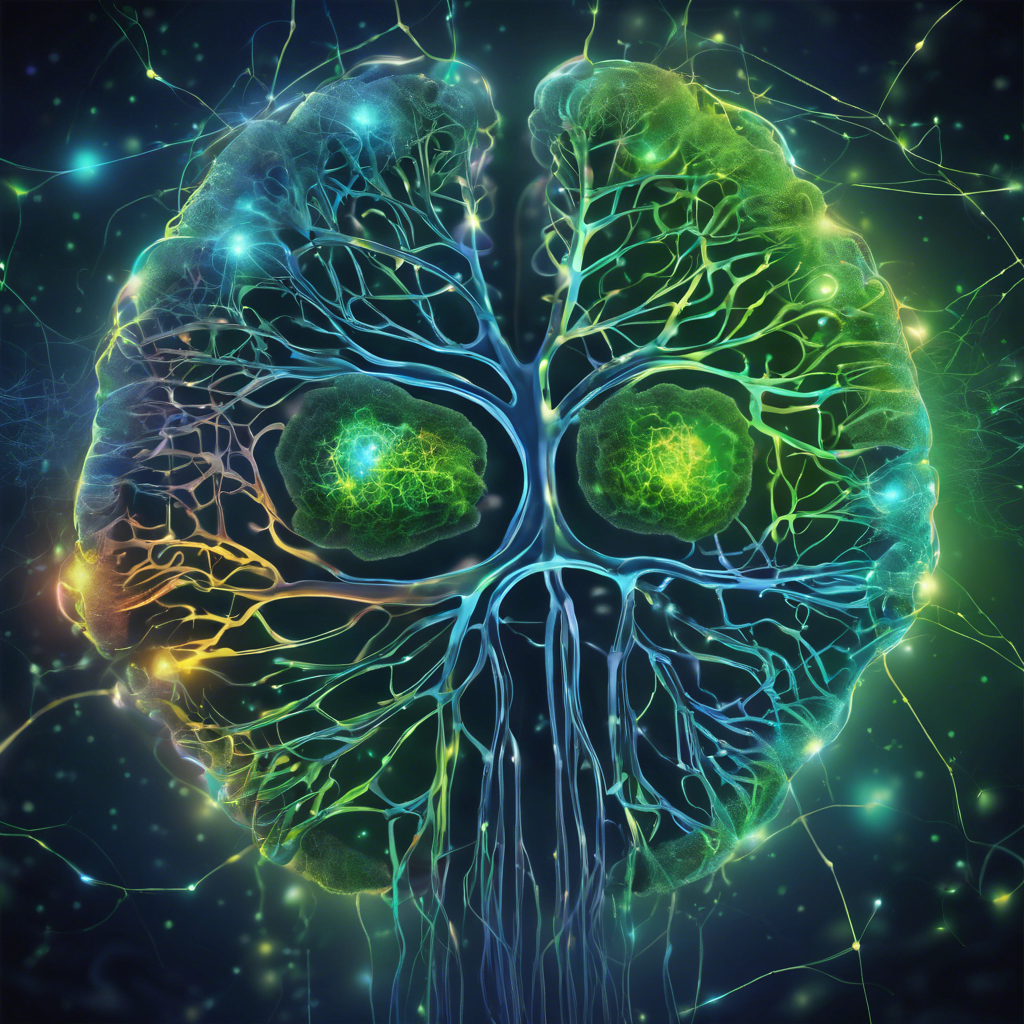Table of Contents
What Does Brain-Derived Neurotrophic Factor (BDNF) Do?
Introduction to BDNF
Brain-Derived Neurotrophic Factor (BDNF) is a crucial protein that plays a vital role in the growth, development, and maintenance of neurons in the brain. Part of the neurotrophin family of growth factors, BDNF is essential for neurogenesis (the process of generating new neurons), synaptic plasticity (the ability of synapses to strengthen or weaken over time), and overall brain health. This article delves into the functions of BDNF, its impact on brain health, its relationship with mental health disorders, and how lifestyle factors can influence its levels.
1. Understanding the Role of BDNF in the Brain
BDNF is primarily produced in the brain and is widely distributed throughout the central nervous system (CNS). It plays a significant role in several critical processes:
a. Neurogenesis
BDNF promotes neurogenesis, the formation of new neurons, particularly in the hippocampus, an area of the brain associated with learning and memory. Increased levels of BDNF facilitate the differentiation of neural stem cells into mature neurons, supporting cognitive function and memory retention.
b. Synaptic Plasticity
BDNF is vital for synaptic plasticity, the mechanism underlying learning and memory. It enhances synaptic strength and contributes to long-term potentiation (LTP), a process where synaptic connections are strengthened. This plasticity allows the brain to adapt and reorganize itself in response to new experiences, learning, and environmental changes.
c. Neuron Survival and Maintenance
BDNF supports the survival and maintenance of existing neurons. It helps prevent apoptosis (programmed cell death) in neurons, ensuring that healthy neurons continue to function effectively. By providing essential support to neurons, BDNF helps maintain overall brain health and function.
2. BDNF and Mental Health
Research has shown a significant link between BDNF levels and various mental health disorders. Low levels of BDNF have been associated with several conditions, including:
a. Depression
Many studies indicate that individuals with depression often have reduced BDNF levels. The relationship between BDNF and depression suggests that enhancing BDNF signaling may improve mood and alleviate depressive symptoms. Treatments such as antidepressants and exercise have been shown to increase BDNF levels, contributing to their efficacy in treating depression.
b. Anxiety Disorders
Similar to depression, anxiety disorders have also been linked to lower levels of BDNF. The role of BDNF in stress response and emotional regulation indicates that increasing its levels may help mitigate anxiety symptoms.
c. Schizophrenia and Bipolar Disorder
Altered BDNF signaling has been observed in individuals with schizophrenia and bipolar disorder. Research suggests that BDNF may play a role in the pathophysiology of these disorders, potentially influencing symptoms such as cognitive dysfunction and mood instability.
3. The Impact of Lifestyle on BDNF Levels
Several lifestyle factors can influence BDNF levels, highlighting the importance of healthy habits for maintaining optimal brain health:
a. Physical Exercise
Regular physical activity has been shown to significantly increase BDNF levels. Aerobic exercises, such as running, swimming, and cycling, stimulate the release of BDNF and promote neurogenesis. Exercise-induced BDNF release contributes to improved mood, cognitive function, and overall brain health.
b. Nutrition
Diet plays a crucial role in modulating BDNF levels. Nutrients such as omega-3 fatty acids, antioxidants, and vitamins (like B6 and D) are associated with increased BDNF expression. Foods rich in these nutrients, including fatty fish, nuts, seeds, fruits, and vegetables, can support optimal brain function.
c. Sleep
Adequate sleep is vital for maintaining BDNF levels. Sleep deprivation has been shown to reduce BDNF expression, negatively impacting cognitive function and emotional regulation. Prioritizing good sleep hygiene can help support healthy BDNF levels.
d. Stress Management
Chronic stress can lead to decreased BDNF levels. Engaging in stress-reduction techniques such as mindfulness meditation, yoga, and deep breathing exercises can help mitigate the effects of stress on BDNF levels and overall mental health.

Detailed Overview of Functions of Brain-Derived Neurotrophic Factor (BDNF)
Brain-Derived Neurotrophic Factor (BDNF) is a crucial protein that plays a significant role in the health and function of the nervous system. As a member of the neurotrophin family, BDNF is primarily involved in supporting the survival of existing neurons and encouraging the growth of new neurons and synapses. Below is a comprehensive exploration of the various functions of BDNF:
1. Neurogenesis
Definition: Neurogenesis is the process of generating new neurons from neural stem or progenitor cells.
Role of BDNF:
BDNF is essential for promoting neurogenesis, particularly in the hippocampus, a brain region integral to learning and memory. BDNF supports the proliferation and differentiation of neural progenitor cells, encouraging them to develop into functional neurons.
- Mechanism: BDNF binds to its receptor, TrkB (tropomyosin receptor kinase B), initiating intracellular signaling pathways that lead to increased cell survival and differentiation.
- Impact: This process is vital for cognitive functions, such as memory formation and spatial navigation. Increased neurogenesis in the hippocampus has been linked to improved learning abilities and enhanced cognitive flexibility.
2. Synaptic Plasticity
Definition: Synaptic plasticity refers to the ability of synapses (the connections between neurons) to strengthen or weaken over time, influencing how neurons communicate.
Role of BDNF:
BDNF is a key regulator of synaptic plasticity, particularly in processes like long-term potentiation (LTP) and long-term depression (LTD).
- Long-Term Potentiation (LTP): BDNF promotes LTP, a long-lasting enhancement in signal transmission between neurons that occurs when they are repeatedly stimulated. LTP is considered a cellular mechanism underlying learning and memory.
- Long-Term Depression (LTD): BDNF also plays a role in LTD, a process that weakens synaptic connections, which is important for the refinement of neural circuits.
- Mechanism: BDNF enhances the release of neurotransmitters and increases the sensitivity of postsynaptic neurons, allowing for more robust and adaptable synaptic responses.
3. Neuron Survival and Maintenance
Definition: Neuron survival and maintenance involve protecting neurons from damage, stress, and apoptosis (programmed cell death).
Role of BDNF:
BDNF supports the survival of neurons by providing essential signals that prevent apoptosis.
- Mechanism: When neurons receive BDNF signals, they activate pathways that promote cell survival and health. This includes the activation of genes that protect against oxidative stress and promote cellular repair.
- Impact: By preventing the loss of neurons, BDNF helps maintain the integrity of neural networks and overall brain function, which is crucial for both cognitive abilities and emotional well-being.
4. Regulation of Mood and Emotion
Definition: The regulation of mood involves the complex interplay of biological, psychological, and social factors that influence emotional states.
Role of BDNF:
BDNF has a significant impact on mood regulation, with its levels being closely associated with various mood disorders.
- Depression and Anxiety: Research indicates that individuals suffering from depression and anxiety often exhibit reduced BDNF levels. This reduction is believed to contribute to the pathophysiology of these disorders.
- Mechanism: BDNF enhances synaptic connections in brain areas involved in emotional regulation, such as the prefrontal cortex and amygdala. Increased BDNF levels have been associated with improved mood and resilience against stress.
- Impact: Therapies that increase BDNF levels, such as antidepressants and exercise, can alleviate symptoms of mood disorders, highlighting the importance of BDNF in mental health.
5. Cognitive Function
Definition: Cognitive function encompasses various mental processes, including attention, memory, and problem-solving abilities.
Role of BDNF:
BDNF is crucial for enhancing cognitive functions and supporting learning and memory processes.
- Mechanism: BDNF promotes synaptic growth and strengthens synaptic connections, facilitating better communication between neurons. This is particularly important in areas of the brain responsible for learning and memory, such as the hippocampus.
- Impact: Studies have shown that higher BDNF levels correlate with improved cognitive performance. This is significant for tasks that require learning new information, problem-solving, and adapting to new environments.
6. Response to Exercise
Definition: Physical exercise triggers various biological responses that promote overall health, including brain health.
Role of BDNF:
Exercise is one of the most effective natural stimulants for increasing BDNF levels.
- Mechanism: Aerobic exercise and resistance training have been shown to elevate BDNF levels in the brain and peripheral circulation. The exact mechanisms include increased blood flow, enhanced oxygen supply, and the release of growth factors from muscles during exercise.
- Impact: Regular physical activity leads to improved neuroplasticity, cognitive function, and emotional resilience. Exercise-induced increases in BDNF are linked to the therapeutic effects of physical activity in improving mood and cognitive performance.
7. Regulation of Energy Metabolism
Definition: Energy metabolism refers to the biochemical processes that convert food into energy for cellular functions.
Role of BDNF:
BDNF plays a role in regulating energy metabolism, ensuring that neurons receive adequate energy to perform their functions.
- Mechanism: BDNF influences glucose metabolism and lipid metabolism in the brain, promoting the uptake of glucose by neurons and enhancing their energy production capabilities.
- Impact: By regulating energy metabolism, BDNF contributes to the overall health of neurons and their ability to adapt to metabolic demands, which is vital for maintaining cognitive functions and preventing neurodegeneration.
8. Influence on Pain Perception
Definition: Pain perception is the process by which the body senses and responds to pain stimuli.
Role of BDNF:
BDNF is involved in modulating pain pathways within the nervous system.
- Mechanism: BDNF enhances the sensitivity of pain receptors (nociceptors) and increases the excitability of neurons in pain pathways, influencing both acute and chronic pain perception.
- Impact: Understanding the role of BDNF in pain perception can help in developing targeted treatments for chronic pain conditions, as altering BDNF signaling may alleviate pain symptoms.
9. Role in Neurodegenerative Diseases
Definition: Neurodegenerative diseases are conditions characterized by the progressive degeneration of neurons, leading to cognitive decline and motor dysfunction.
Role of BDNF:
BDNF is believed to have neuroprotective effects that may help protect against neurodegenerative diseases such as Alzheimer’s and Parkinson’s disease.
Impact: Increasing BDNF levels through lifestyle interventions (such as exercise) or pharmacological approaches may provide therapeutic benefits in slowing the progression of neurodegenerative diseases.
Mechanism: BDNF promotes neuronal survival, reduces inflammation, and supports synaptic health, which may counteract the effects of neurodegeneration. It is thought that BDNF can help to maintain neuronal health by preventing the loss of synaptic connections and promoting neuroplasticity.

Regulation of Brain-Derived Neurotrophic Factor (BDNF)
The regulation of Brain-Derived Neurotrophic Factor (BDNF) is complex and involves multiple factors, including genetic, environmental, and physiological influences. Understanding how BDNF levels are controlled can provide insights into its role in brain health and disease. Here, we explore the various mechanisms and factors that regulate BDNF expression and activity.
1. Transcriptional Regulation
Gene Expression:
The BDNF gene (BDNF) is located on chromosome 11 in humans and is subject to intricate transcriptional regulation. Several transcription factors can activate or inhibit the transcription of the BDNF gene, influencing its expression levels.
Transcription Factors:
- CREB (cAMP response element-binding protein): CREB is one of the most important transcription factors for BDNF expression. Activation of the cAMP signaling pathway leads to the phosphorylation of CREB, enhancing BDNF transcription.
- NF-κB (Nuclear factor kappa-light-chain-enhancer of activated B cells): NF-κB also regulates BDNF transcription in response to inflammatory signals.
- AP-1 (Activator Protein 1): AP-1 can influence BDNF expression in response to various stressors, including oxidative stress.
Alternative Promoters:
The BDNF gene contains multiple promoters that drive the expression of different BDNF isoforms (variants). This alternative splicing allows for tissue-specific regulation and responses to various stimuli, including neuronal activity and environmental factors.
2. Post-Transcriptional Regulation
mRNA Stability and Translation:
Once BDNF mRNA is transcribed, its stability and translation into protein are regulated by several mechanisms.
- MicroRNAs (miRNAs): Specific miRNAs can bind to BDNF mRNA, leading to its degradation or inhibiting its translation. For example, miR-30 and miR-15 have been implicated in downregulating BDNF levels.
- RNA-Binding Proteins: Proteins that bind to BDNF mRNA can enhance or inhibit its stability, affecting the amount of BDNF protein produced.
3. Regulation by Physiological Factors
Exercise:
Physical activity is one of the most potent natural stimulators of BDNF expression.
- Mechanism: Exercise increases the levels of various growth factors, including BDNF, through enhanced neuronal activity, increased blood flow, and the release of myokines (signaling molecules released by muscles during exercise).
- Impact: Regular aerobic and resistance training can significantly elevate BDNF levels in both the brain and bloodstream, contributing to improved cognitive function and mental health.
Diet and Nutrition:
Nutritional factors can also influence BDNF levels.
- Omega-3 Fatty Acids: Found in fish and flaxseed, omega-3 fatty acids have been shown to enhance BDNF expression and promote neurogenesis.
- Antioxidants: Diets rich in antioxidants (e.g., vitamins C and E, flavonoids) can help reduce oxidative stress, which can positively impact BDNF levels.
- Caloric Intake: Some studies suggest that caloric restriction may lead to increased BDNF levels, although this relationship can be complex and dependent on individual metabolic responses.
4. Regulation by Environmental Factors
Stress:
Chronic stress can lead to decreased BDNF levels, negatively affecting mood and cognitive functions.
- Mechanism: Stress hormones such as cortisol can inhibit BDNF expression through various signaling pathways, including the activation of inflammatory mediators and the suppression of CREB activity.
- Impact: Lower BDNF levels in response to chronic stress are associated with an increased risk of mood disorders, including depression and anxiety.
Social Environment:
Social interactions and environmental enrichment can also influence BDNF levels.
- Mechanism: Positive social interactions and stimulating environments can enhance BDNF expression through increased neuronal activity and reduced stress levels.
- Impact: Conversely, social isolation and negative environmental conditions may lead to decreased BDNF levels, further impacting mental health.
5. Pharmacological Regulation
Antidepressants:
Certain medications, particularly antidepressants, can increase BDNF levels as part of their therapeutic effects.
- Mechanism: Selective serotonin reuptake inhibitors (SSRIs) and other classes of antidepressants have been shown to enhance BDNF signaling pathways, contributing to improved mood and cognitive function.
- Impact: The increase in BDNF levels in response to these medications is thought to play a significant role in their efficacy in treating depression.
Other Pharmacological Agents:
Various drugs and compounds, including those targeting inflammation, neuroprotection, and cognition, can influence BDNF levels.
Examples: N-acetylcysteine (NAC), curcumin, and some anti-inflammatory agents have been found to elevate BDNF levels in certain contexts.

Clinical Implications of Brain-Derived Neurotrophic Factor (BDNF)
Brain-Derived Neurotrophic Factor (BDNF) has garnered significant attention in the medical and psychological fields due to its critical roles in neuronal survival, synaptic plasticity, and cognitive function. Understanding the clinical implications of BDNF is essential for developing effective therapies for various neurological and psychiatric conditions. Below, we explore the implications of BDNF in several clinical contexts.
1. Mental Health Disorders
Depression and Anxiety
BDNF levels have been consistently linked to mood disorders such as depression and anxiety.
- Mechanism: Individuals with major depressive disorder (MDD) often show reduced BDNF levels, particularly in the hippocampus, which is crucial for mood regulation and memory.
- Clinical Implication: Increasing BDNF levels is believed to contribute to the therapeutic effects of antidepressants. Treatments like SSRIs and exercise, both of which enhance BDNF levels, can help alleviate depressive symptoms.
Schizophrenia
Alterations in BDNF signaling have been implicated in schizophrenia.
- Mechanism: Dysregulation of BDNF may affect neurodevelopmental processes and synaptic connectivity, contributing to the cognitive deficits and positive/negative symptoms observed in schizophrenia.
- Clinical Implication: Understanding BDNF’s role in schizophrenia may lead to novel therapeutic strategies, including BDNF-based treatments that enhance cognitive function and mitigate symptoms.
2. Cognitive Disorders
Alzheimer’s Disease
BDNF is crucial for synaptic health and neuronal survival, making it a focal point in Alzheimer’s disease research.
- Mechanism: Decreased BDNF levels are associated with neurodegeneration, synaptic loss, and cognitive decline in Alzheimer’s patients.
- Clinical Implication: Therapeutic approaches aimed at increasing BDNF levels may slow the progression of Alzheimer’s disease. Strategies such as exercise, cognitive training, and potential pharmacological agents are being explored to enhance BDNF signaling.
Age-Related Cognitive Decline
As individuals age, BDNF levels naturally decline, which can contribute to cognitive impairment.
Clinical Implication: Interventions that promote BDNF expression, such as regular physical activity and engaging in intellectually stimulating activities, may help preserve cognitive function in aging populations.
3. Neurodegenerative Diseases
Parkinson’s Disease
BDNF has been implicated in the pathophysiology of Parkinson’s disease, affecting both motor and non-motor symptoms.
- Mechanism: BDNF supports the survival of dopaminergic neurons, and decreased BDNF levels have been observed in patients with Parkinson’s disease.
- Clinical Implication: Increasing BDNF levels may provide neuroprotective effects and improve motor function. Exercise and certain neuroprotective agents are under investigation for their potential to enhance BDNF signaling in Parkinson’s disease.
Huntington’s Disease
In Huntington’s disease, BDNF has been shown to play a protective role against neurodegeneration.
- Mechanism: Reduced BDNF levels are associated with the progressive neuronal loss seen in Huntington’s disease.
- Clinical Implication: Therapeutic strategies that boost BDNF signaling may slow the progression of Huntington’s disease and improve quality of life for patients.
4. Pain Management
Chronic Pain Conditions
BDNF is involved in the modulation of pain pathways, making it relevant for chronic pain syndromes.
- Mechanism: Increased BDNF levels can enhance pain sensitivity and contribute to the development of chronic pain conditions.
- Clinical Implication: Understanding the role of BDNF in pain perception may lead to targeted therapies that modulate BDNF signaling, potentially alleviating chronic pain symptoms.
5. Developmental and Pediatric Conditions
Developmental Disorders
Research has shown that BDNF is critical for brain development and function in children.
- Mechanism: Abnormal BDNF signaling has been linked to developmental disorders such as autism spectrum disorder (ASD).
- Clinical Implication: Interventions aimed at modulating BDNF levels may offer therapeutic benefits in managing symptoms associated with developmental disorders.
6. Therapeutic Approaches
Exercise and Lifestyle Interventions
Physical activity is one of the most effective ways to increase BDNF levels.
- Clinical Implication: Encouraging regular exercise can serve as a non-pharmacological strategy to enhance brain health and improve mood and cognitive function in various patient populations.
Pharmacological Interventions
Research into drugs that can enhance BDNF signaling is ongoing.
Clinical Implication: Potential pharmacological agents that target BDNF pathways may provide new treatment options for mood disorders, neurodegenerative diseases, and cognitive impairments.
FAQs about BDNF
1. What are the primary functions of BDNF?
A1: BDNF is essential for neurogenesis, synaptic plasticity, and the survival and maintenance of neurons. It plays a critical role in learning, memory, and overall brain health.
2. How does BDNF relate to mental health?
A2: Low levels of BDNF have been linked to various mental health disorders, including depression, anxiety, schizophrenia, and bipolar disorder. Increasing BDNF levels may help alleviate symptoms associated with these conditions.
3. What lifestyle factors can increase BDNF levels?
A3: Regular physical exercise, a nutritious diet rich in omega-3 fatty acids and antioxidants, adequate sleep, and effective stress management techniques can all contribute to increased BDNF levels.
4. Can BDNF levels be measured?
A4: While BDNF levels can be assessed through blood tests, research is ongoing to establish standardized methods for measuring BDNF in clinical settings.
5. Are there any supplements that can boost BDNF levels?
A5: Some studies suggest that omega-3 fatty acids, curcumin, and certain vitamins may help boost BDNF levels, but it is essential to consult a healthcare provider before taking any supplements.
Conclusion
Brain-Derived Neurotrophic Factor (BDNF) is a multifaceted protein that plays a vital role in various aspects of brain health and function. Its significance spans across mental health disorders, neurodegenerative diseases, and developmental conditions, making it essential for maintaining a healthy brain. BDNF promotes neurogenesis, enhances synaptic plasticity, and supports neuronal survival, thereby regulating mood, cognitive functions, and overall emotional well-being.
Understanding the regulation of BDNF involves a complex interplay of genetic, environmental, and physiological factors. This knowledge is crucial for developing effective therapeutic strategies that can enhance BDNF levels, ultimately improving patient outcomes in various clinical contexts.
Incorporating lifestyle changes such as regular exercise, a balanced diet, sufficient sleep, and effective stress management can significantly impact BDNF expression. Engaging in these healthy habits not only promotes brain health but also enhances cognitive function and emotional resilience.
Ongoing research into pharmacological agents that can modulate BDNF levels may offer new avenues for treating mental health disorders and neurodegenerative diseases. By prioritizing both lifestyle choices and clinical interventions aimed at boosting BDNF, individuals and healthcare professionals alike can take proactive steps toward enhancing overall quality of life and brain health.
Conclusion key points:
Basic Functions:
- BDNF is important for neural development, synaptic plasticity, and cognitive functions such as learning and memory.
- It plays a role in mood regulation and has neuroprotective effects, helping to protect neurons from damage and degeneration.
Regulation:
- BDNF levels are regulated by a complex interaction of genetic, environmental, hormonal, and lifestyle factors. Factors such as physical exercise, diet, stress, sleep, and cognitive stimulation significantly affect BDNF levels.
Clinical Effects:
- BDNF has important implications for a range of neurological and psychiatric conditions. Decreased BDNF levels are associated with depression, neurodegenerative diseases (such as Alzheimer’s and Parkinson’s), and cognitive decline with aging.
- Increasing BDNF levels through medications, lifestyle changes, and therapeutic interventions can improve outcomes in these conditions and support brain health.
Possible Treatment Options:
- Understanding and targeting BDNF pathways offers the potential to develop new treatments for mood disorders, neurodegenerative diseases, and cognitive impairments.
- Personalized medicine approaches can use BDNF levels as a biomarker to tailor treatments and monitor disease progression.
Future Directions:
- Continued research is needed to fully elucidate the role of BDNF in various conditions and to develop effective strategies to manipulate BDNF levels. This includes exploring new pharmacological agents, improving lifestyle interventions, and improving diagnostic and therapeutic tools based on BDNF.
Finally, BDNF is an important component in maintaining brain health and function. Its regulation affects a wide range of cognitive, emotional and neurological processes. Advances in understanding BDNF may lead to more effective treatments for various brain-related disorders and may contribute to healthy aging and improved cognitive function. Also read

Can you be more specific about the content of your article? After reading it, I still have some doubts. Hope you can help me.
I don’t think the title of your article matches the content lol. Just kidding, mainly because I had some doubts after reading the article.